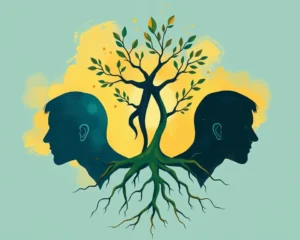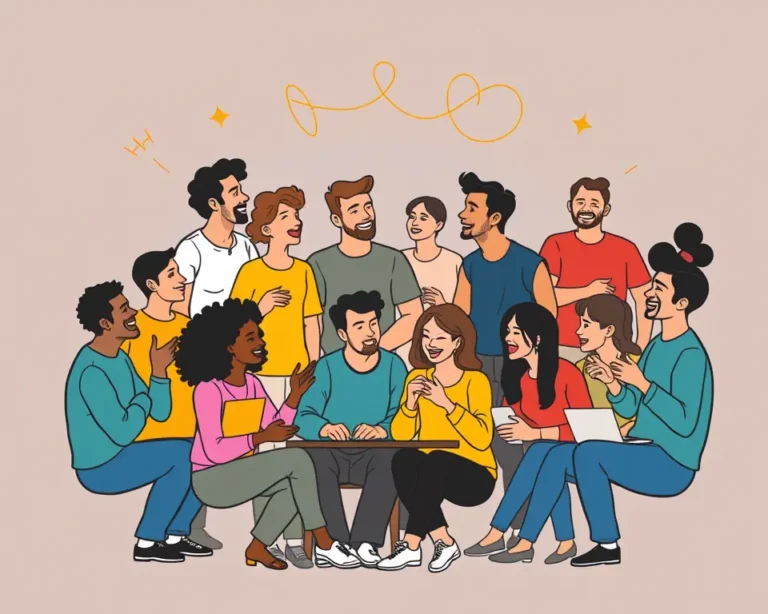In today’s fast-paced world, it’s easy to prioritize physical fitness and diet while overlooking another crucial aspect of well-being: social fitness. But what exactly is social fitness, and how does it impact your overall health? Experts are increasingly recognizing that our connections with others play a vital role in both our physical and mental health.
Decoding Social Fitness: More Than Just Being Social
Social fitness refers to your ability to effectively and constructively engage with your social environment. It encompasses the relationships you build and maintain with people at home, in the workplace, and in your community. It’s about the quality of your interactions, not just the quantity. Key components of social fitness include:
- Family and community engagement: Participating in activities and events that foster a sense of belonging.
- Cultural inclusiveness: Interacting with people from diverse backgrounds and experiences.
- Peer-to-peer networks: Building supportive relationships with people who share similar interests or experiences.
- Unit cohesion: Working effectively with others towards a common goal.
The Ripple Effect: How Social Fitness Impacts Health
The benefits of strong social connections are far-reaching, impacting everything from your mood to your immune system. Studies have consistently demonstrated the positive effects of social fitness on various aspects of health:
Mental Well-being
- Reduced risk of anxiety and depression: Social connections provide a buffer against stress and promote feelings of security and belonging.
- Higher self-esteem: Positive social interactions reinforce your sense of self-worth.
- Improved cognitive function: Social engagement stimulates neuroplasticity, the rewiring of brain cells, which improves cognitive and physical performance.
Physical Health
- Stronger immune system: Social connections can strengthen the immune system and support long-term health.
- Improved cardiovascular health: Studies have shown that simply having another person to socialize with can reduce heart rate, blood pressure, and stress-related hormones.
- Increased longevity: People with strong social ties are more likely to live longer than those who are socially isolated.
- Reduced risk of chronic diseases: Those less socially connected are two to three times more likely to develop chronic diseases.
The Dark Side of Social Isolation: Health Risks
On the flip side, social isolation and loneliness can have detrimental effects on health, comparable to those of smoking, obesity, and physical inactivity. Research has linked social isolation to a range of health problems, including:
- Increased risk of heart disease and stroke: Loneliness and social isolation are associated with a higher risk of cardiovascular events.
- Weakened immune system: Social isolation can impair immune function, making you more susceptible to illness.
- Cognitive decline and Alzheimer’s disease: Studies have linked social isolation and loneliness to cognitive decline and an increased risk of Alzheimer’s disease.
- Anxiety and depression: Social isolation can exacerbate feelings of anxiety and depression.
- Increased risk of death: Social isolation and loneliness are significant predictors of mortality.
Building Your Social Gym: Tips to Improve Social Fitness
Just like physical fitness, social fitness requires conscious effort and regular “exercise”. Here are some actionable strategies to strengthen your social connections:
Make Connections
- Engage in conversations: Strive to have meaningful conversations with people, showing genuine interest in their thoughts and feelings.
- Join social groups: Participate in activities and groups that align with your interests, such as fitness classes, book clubs, or volunteer organizations.
- Reconnect with old friends: Reach out to friends or family members you haven’t spoken to in a while.
- Be open to meeting new people: Strike up conversations with strangers, whether it’s at a coffee shop or a community event.
Nurture Relationships
- Invest time in relationships: Make a conscious effort to spend quality time with the people you care about.
- Practice active listening: Pay attention when others are speaking, and show that you understand their perspective.
- Express gratitude: Show appreciation for the people in your life and the things they do for you.
- Be supportive: Offer help and encouragement to others, especially during challenging times.
Take Care of Yourself
- Prioritize self-care: Taking care of your own physical and mental health is essential for maintaining healthy relationships.
- Set boundaries: It’s important to set boundaries in your relationships to protect your time and energy.
- Seek help when needed: Don’t hesitate to reach out to a therapist or counselor if you’re struggling with social isolation or relationship issues.
Social Fitness at Work
- Participate in workplace social events: Attend company-sponsored events and informal get-togethers to connect with colleagues.
- Be generous with your connections: Introduce colleagues to people who can help them advance their careers.
- Offer support and encouragement: Be a supportive and helpful colleague, and offer to mentor others.
Specific Strategies
- The 5-3-1 Framework: Connect with five people a week, maintain at least three close relationships, and get one hour of quality connection time a day.
- Volunteer: Serving others can provide a sense of purpose and connection to the community.
- Limit Social Media: Reduce excessive social media use, which can lead to feelings of disconnection.
- Stay Connected: Check in with a family member, friend, coworker, or fellow service member regularly.
- Find a Workout Buddy: Having a workout partner can provide motivation and accountability.
The Bottom Line: Social Fitness is Essential for a Healthy Life
In conclusion, social fitness is not just a nice-to-have; it’s a necessity for a healthy and fulfilling life. By prioritizing our social connections and actively working to improve our social fitness, we can reap numerous benefits for our mental and physical well-being. So, make an effort to connect with others, nurture your relationships, and build a strong social support system. Your health will thank you for it.







